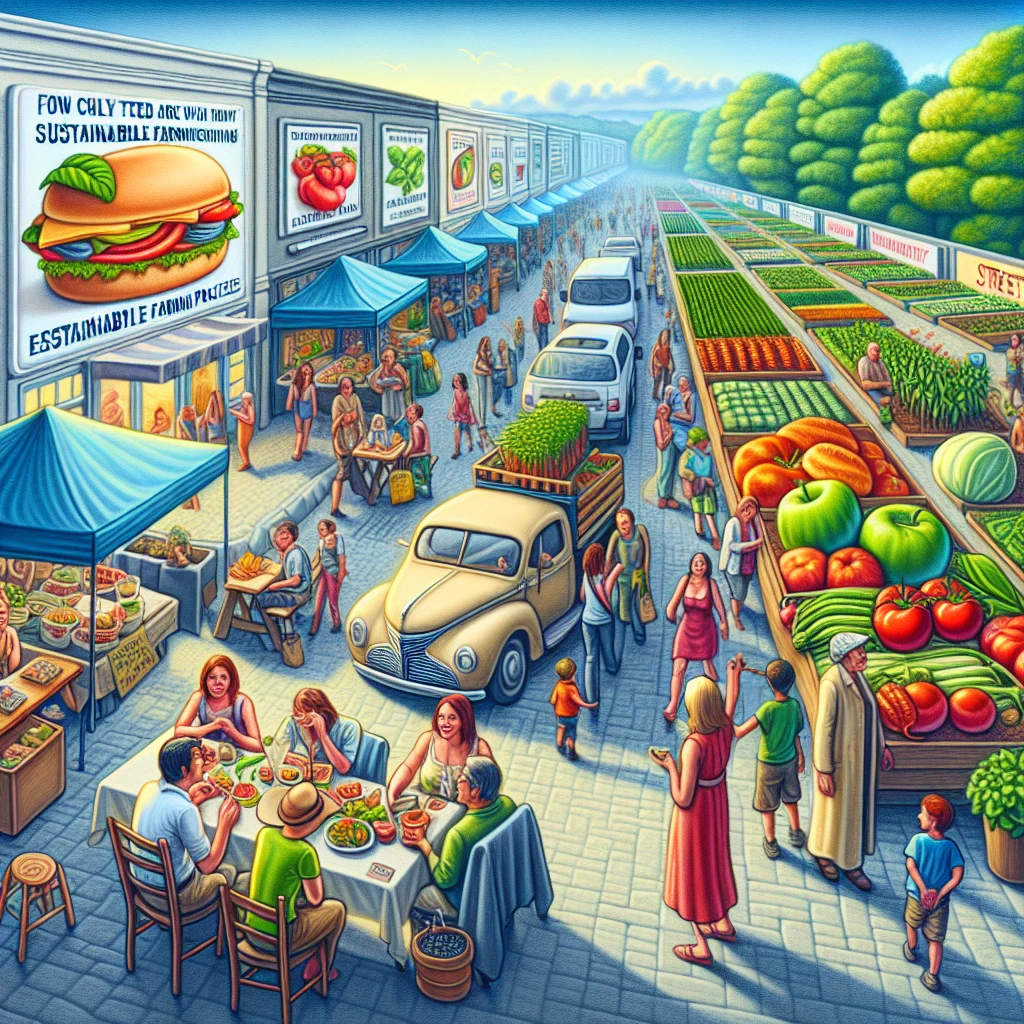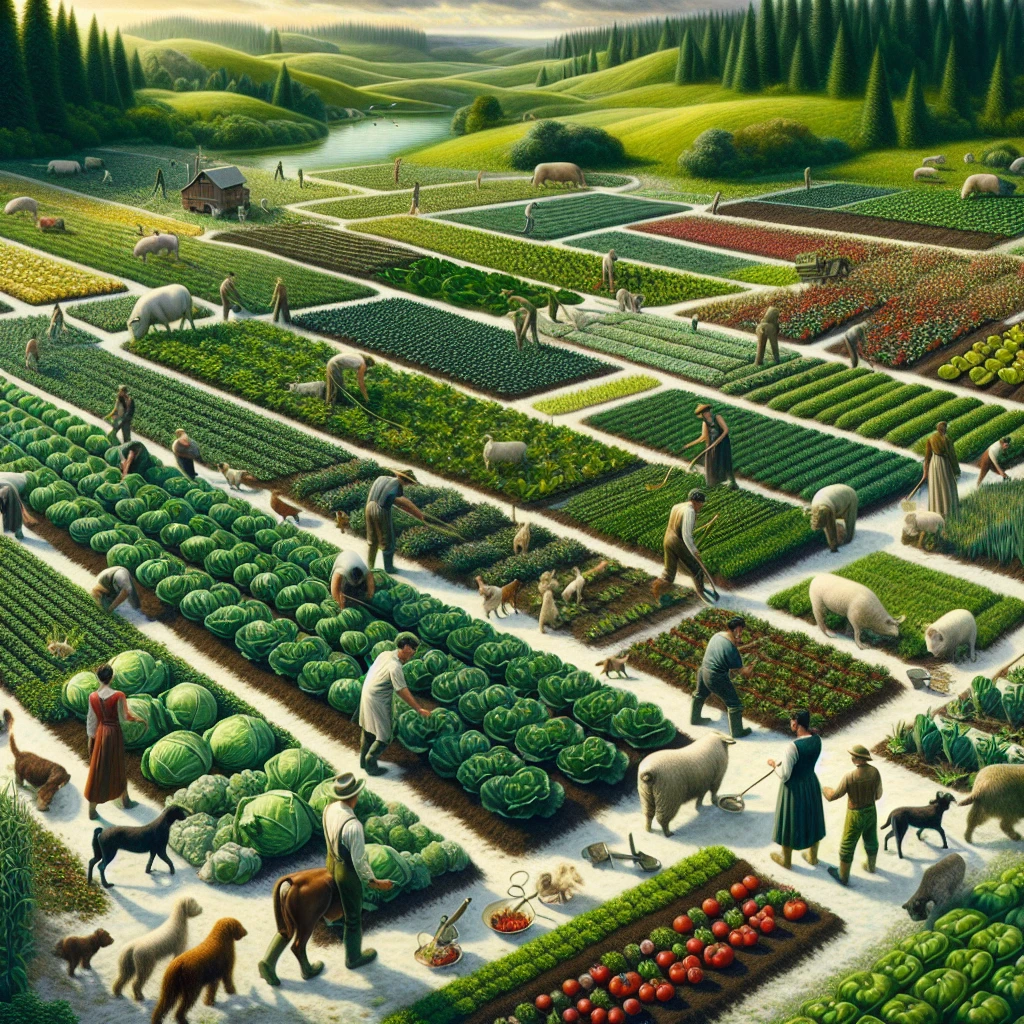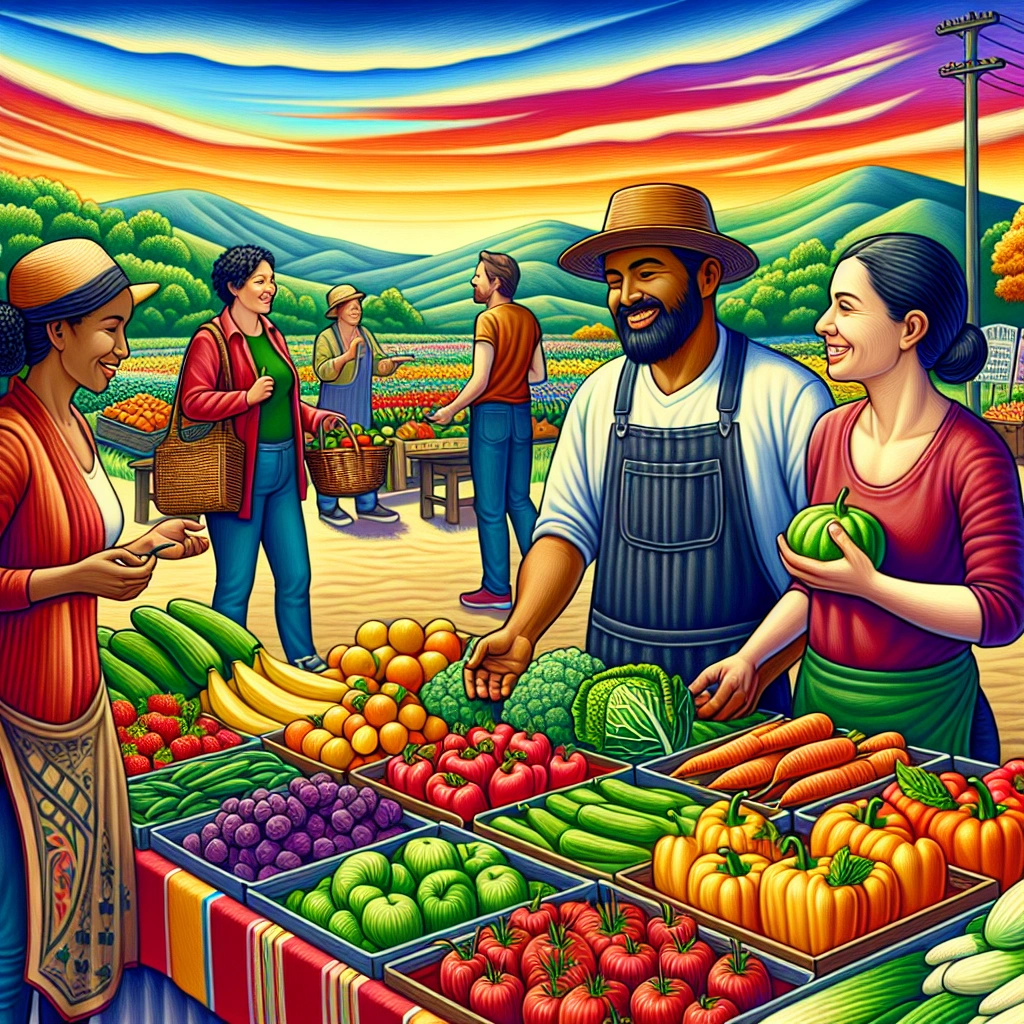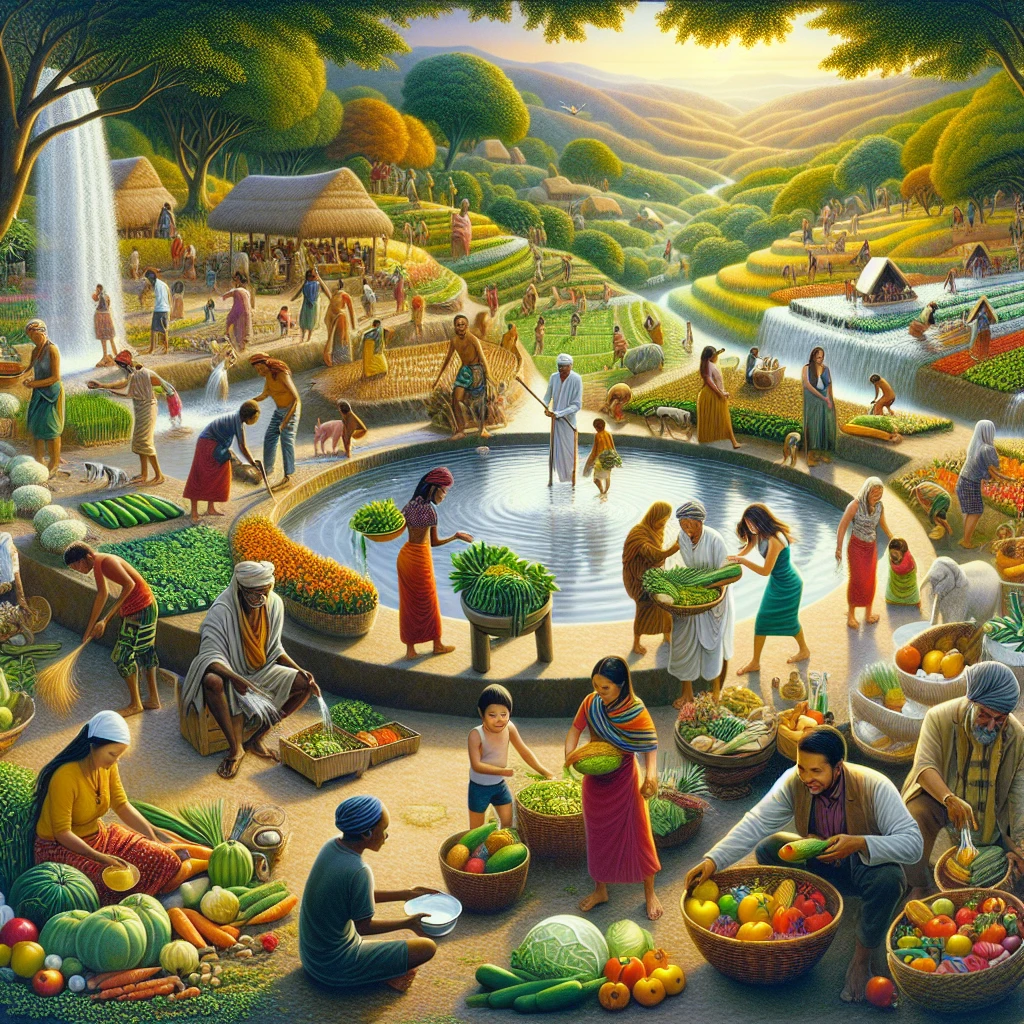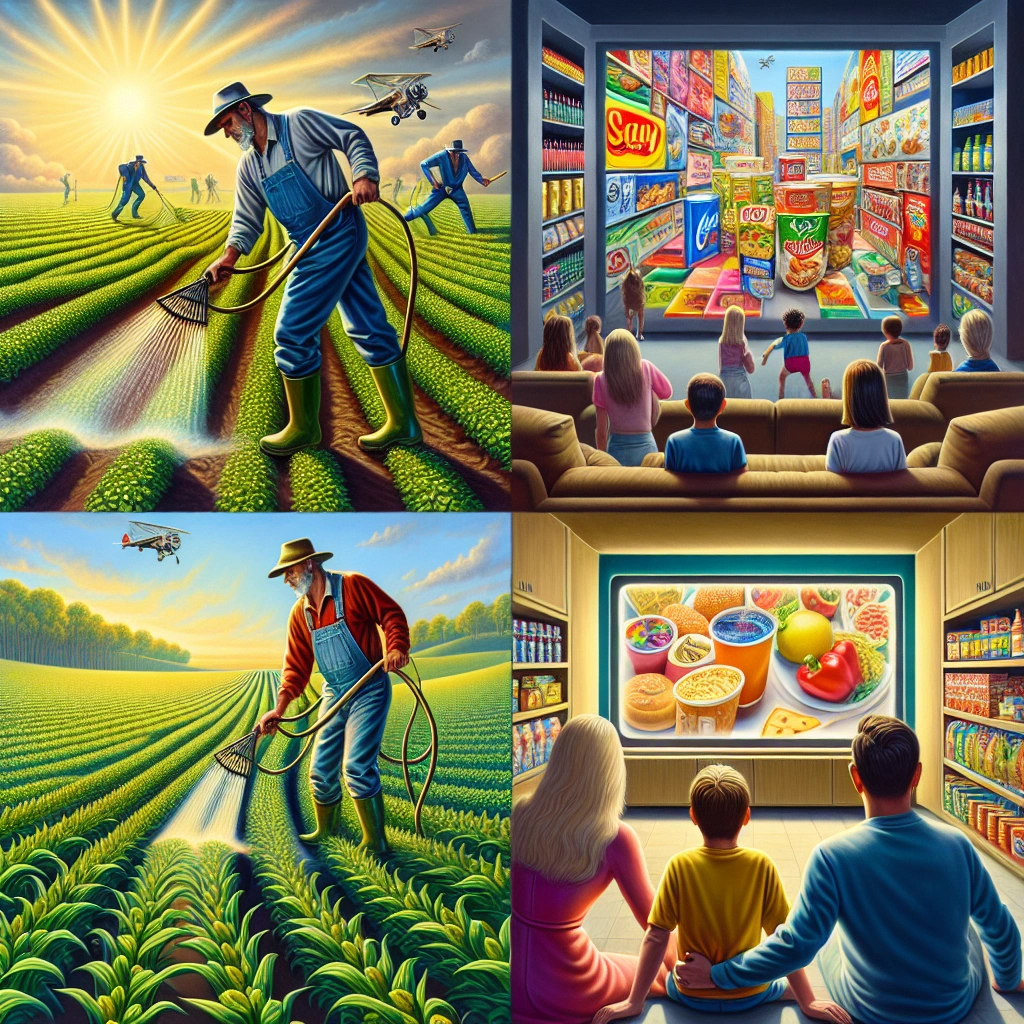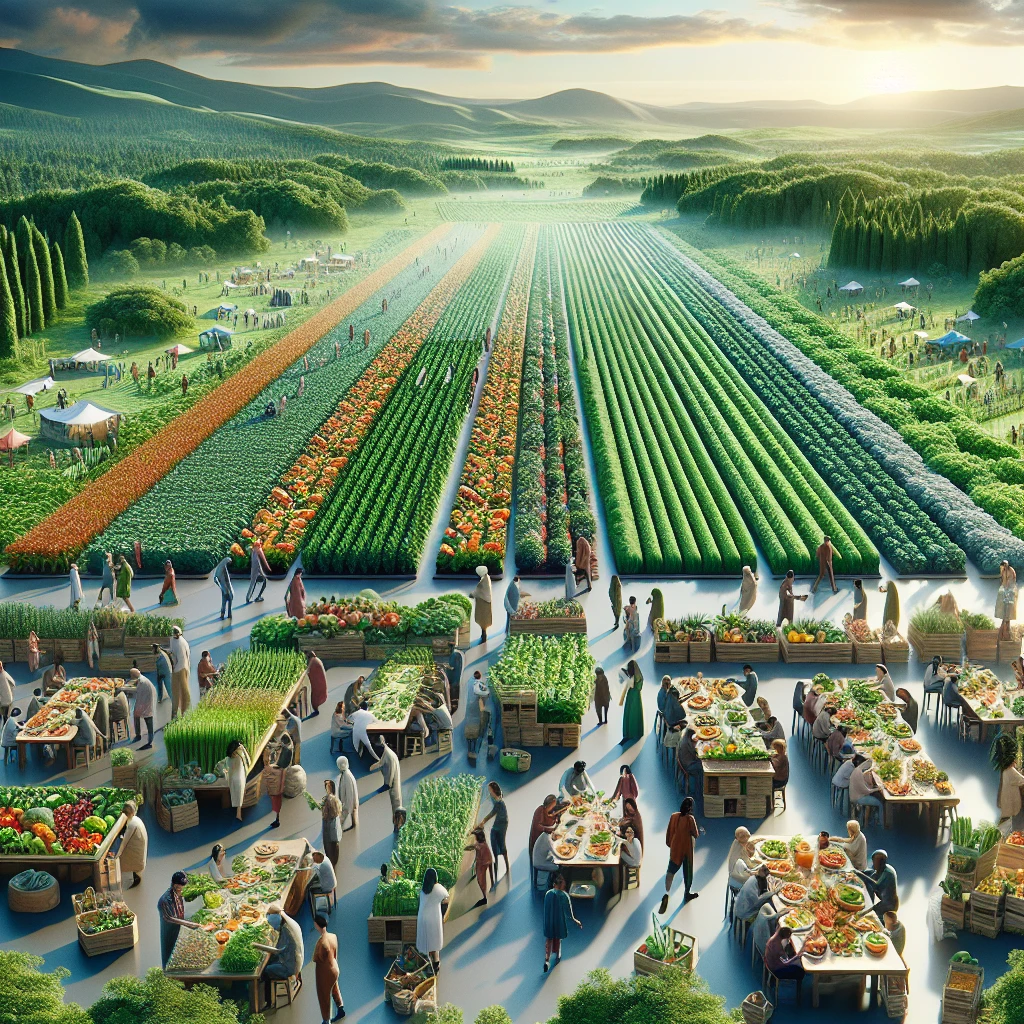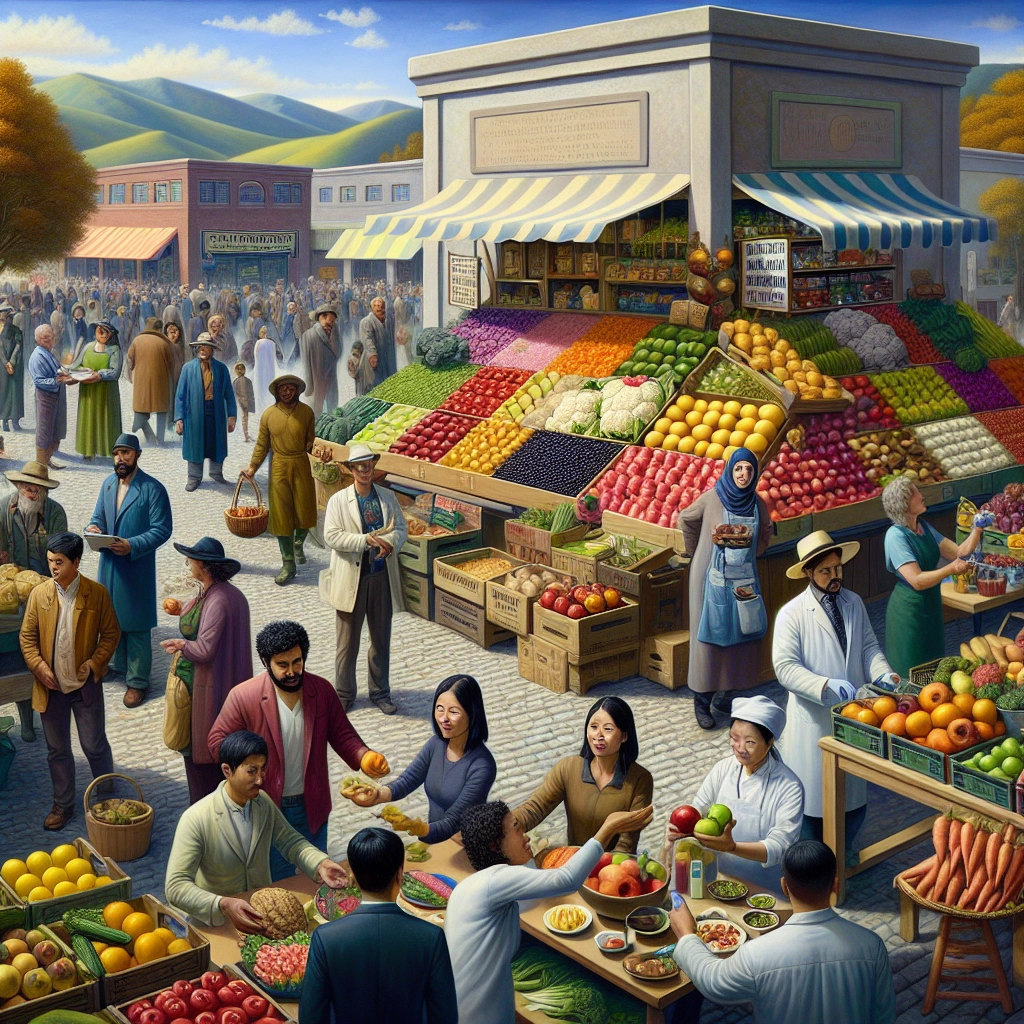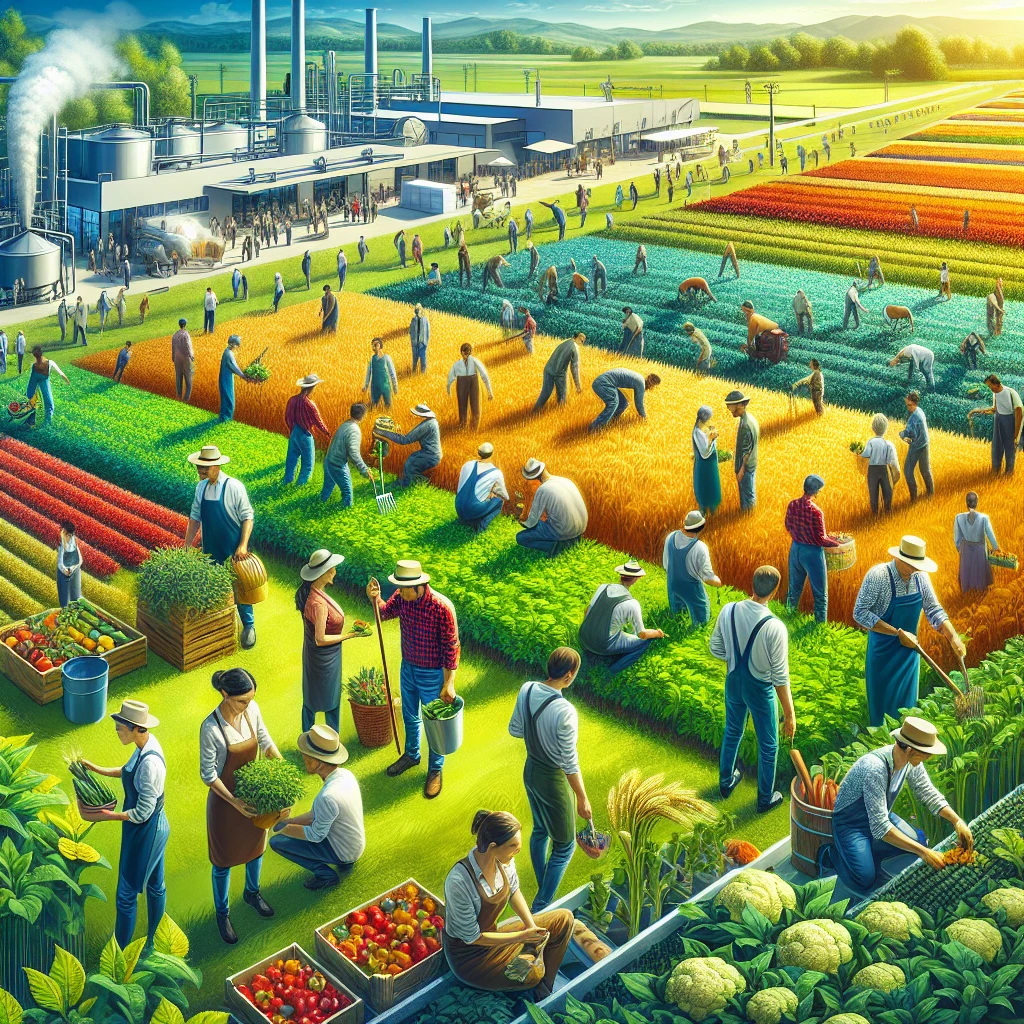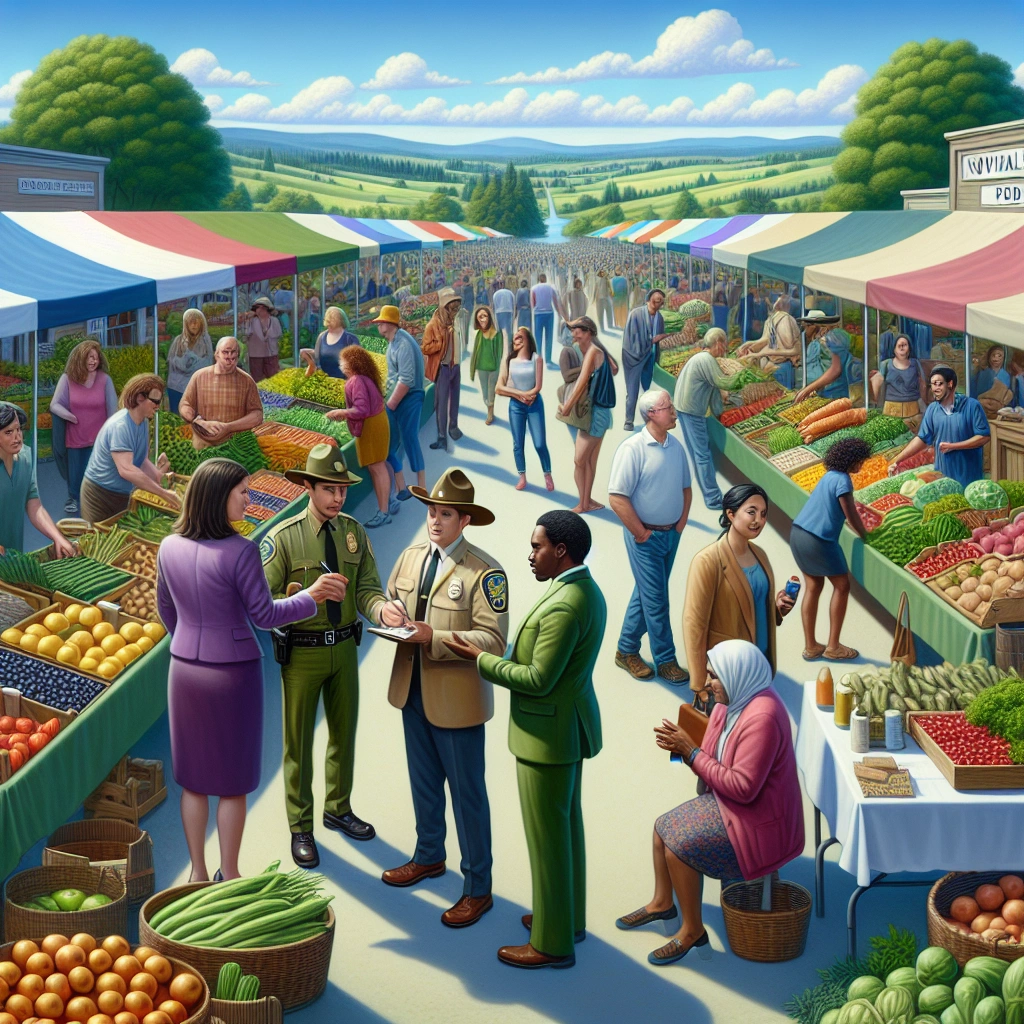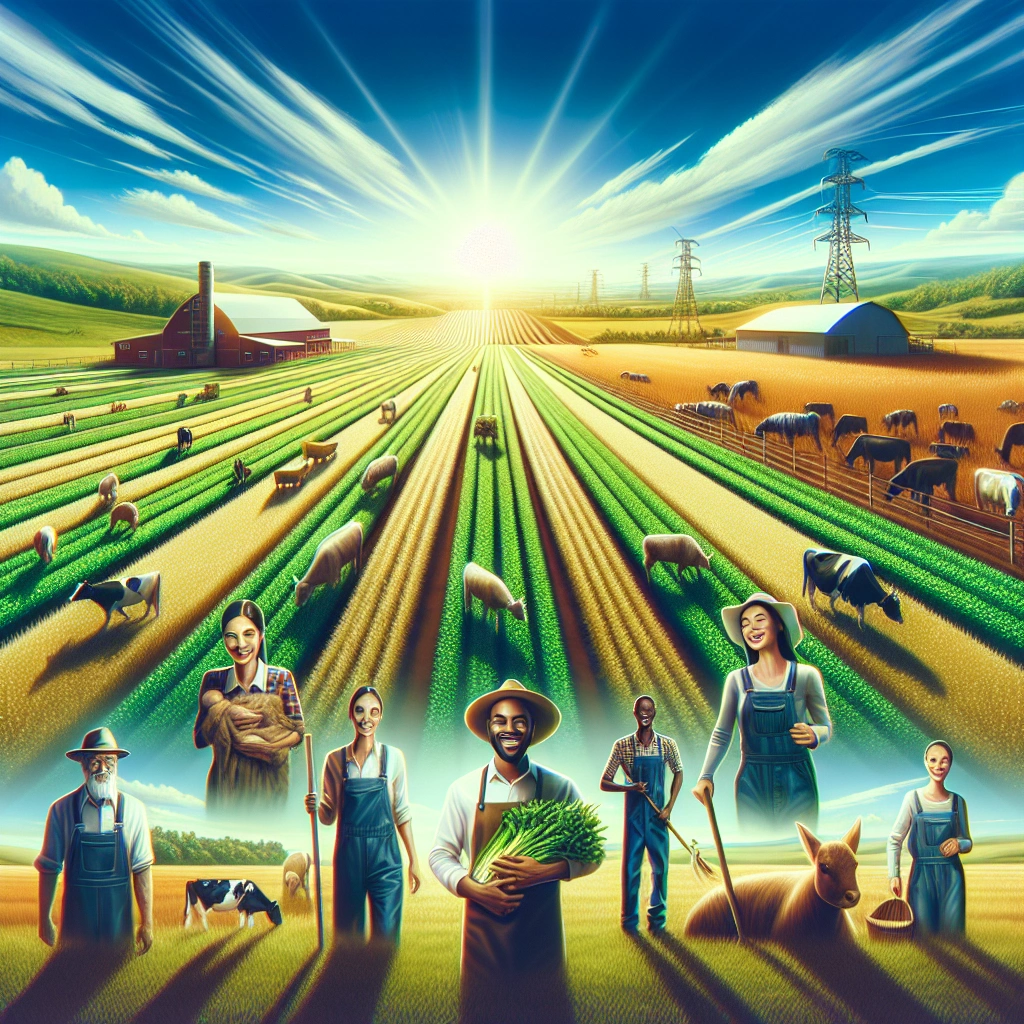

Food ethics refers to the moral principles and values that guide the production, distribution, and consumption of food. It involves considering the impact of food choices on animal welfare, the environment, health, and fair trade practices.
Food ethics is important because it helps individuals and organizations make more responsible and sustainable food choices. Understanding food ethics can lead to better treatment of animals, reduced environmental impact, healthier eating habits, and fair treatment of people working in the food system.
It also promotes ethical marketing practices in the food industry.
By understanding food ethics, individuals and organizations can contribute to a more ethical and sustainable food system. It allows for informed decision-making that aligns with moral values and promotes the well-being of animals, the environment, and society.
Check out this Youtube video: “Food as an Ethical Choice” by Peter Singer – YouTube, to gain valuable insights on the importance of food ethics and the impact of our food choices on the environment and society.
The History of Food Ethics
Ancient food ethics
In ancient times, food ethics primarily focused on moderation and temperance, particularly in ancient Greek and Jewish cultures. These ethics revolved around distinguishing between legitimate and illicit food consumption, emphasizing the importance of self-control and moderation in eating habits.
Modern food ethics
In contrast, modern food ethics has shifted its focus from consumption to production, delving into animal ethics and ethical dilemmas surrounding genetically modified (GM) products. Today’s food ethics address issues such as animal welfare, sustainable farming practices, and consumer health concerns, reflecting a more comprehensive approach to ethical considerations in the food industry.
Impact of industrialization on food ethics
The industrialization of food production has brought about significant implications for food ethics. While it has led to increased food abundance, it has also raised concerns about food poverty, environmental degradation, and negative impacts on local economies.
Additionally, industrialization has contributed to environmental issues such as farm runoff, depletion of air and water quality, and extensive land use for agriculture, highlighting the complex intersection between food production and ethical considerations.
| Ancient Food Ethics | Modern Food Ethics | Impact of Industrialization |
|---|---|---|
| Moderation and temperance in food consumption | Emphasis on animal ethics and sustainable farming | Increased abundance but raised concerns about food poverty and environmental degradation |
By examining the historical evolution of food ethics from ancient times to modern-day, it becomes evident that ethical considerations in the food industry have undergone a profound transformation, reflecting the changing societal values and priorities.
The Impact of Food Ethics on Society
Environmental impact
The environmental impact of food ethics is substantial, with food production accounting for over a quarter (26%) of global greenhouse gas emissions. Additionally, half of the world’s habitable land is used for agriculture, impacting biodiversity and natural habitats.
Ethical eating choices that prioritize sustainable farming methods and reduced food waste can help mitigate these environmental effects, contributing to a healthier planet for future generations.
Social impact
Food ethics directly tie into social responsibility, as access to food is a fundamental right. High levels of food insecurity can exacerbate disparities and inequities, negatively impacting the health and well-being of individuals and communities.
Embracing ethical food practices, such as supporting fair trade and prioritizing local food access, can contribute to positive social impacts by ensuring greater equity in the food system.
Economic impact
The economic impact of food ethics manifests through the support of sustainable and ethical food production practices. By embracing ethical food choices, individuals can contribute to a more equitable and sustainable global food system.
This involves supporting small-scale and local farmers, minimizing food waste, and advocating for fair labor practices within the food industry. These actions can lead to economic benefits, fostering a more balanced and ethical food economy.
The Role of Food Ethics in Agriculture
Sustainable farming practices
Sustainable farming practices are essential for maintaining the ecological balance and ensuring the longevity of agricultural resources. Examples include crop rotation, cover cropping, and agroforestry, all of which promote soil health, reduce erosion, and minimize the need for synthetic fertilizers and pesticides.
Ethical treatment of farm animals
Ethical treatment of farm animals is crucial for both animal welfare and human health. Livestock raised on pasture are known to produce healthier meat, dairy, and eggs.
A focus on reducing pain or distress and prioritizing animal health in modern farming conditions is vital for fostering ethical animal farming practices.
Impact on food supply chain
The ethical considerations in agriculture have a significant impact on the food supply chain, implicating food security, disparities in local food access, and overall social and environmental responsibility. Ethical eating involves the conscious consideration of economic, social, and environmental impacts when purchasing and consuming foods and beverages.
| Pros | Cons |
|---|---|
| Promotes ecological balance | Requires dedicated efforts for implementation and maintenance |
| Enhances soil health | May lead to lower initial yields |
| Reduces reliance on synthetic inputs | Calls for education and awareness for widespread adoption |
| Prioritizes animal welfare | Potential increase in production costs |
| Fosters sustainable food supply | Impacts on traditional farming practices and economies |
In summary, sustainable farming practices, ethical treatment of farm animals, and conscious food ethics profoundly influence agricultural sustainability and the overall food supply chain, highlighting the need for a balanced, responsible approach to food production.
The Ethics of Food Production
Labor practices in the food industry
The labor practices in the food industry have been a significant concern, with food workers facing low wages, exploitation, and unsafe working conditions. Many farm and food workers, particularly immigrants, endure harsh working environments, long hours, and discriminatory treatment.
This highlights the urgent need for improved labor conditions and fair treatment for workers involved in food production.
Fair trade and ethical sourcing
Fair trade practices play a crucial role in ensuring that producers receive fair prices and terms of trade, addressing the injustice of low prices in the conventional market. Ethically sourced products guarantee transparency, sustainability, and fair treatment for farmers and workers, aligning with consumer demands for responsible sourcing.
By integrating sustainability into business practices, companies and brands contribute to ethical and fair trade principles.
Food waste and its ethical implications
Food waste is not just a practical issue but also an ethical one, symbolizing environmental destruction and fundamental injustice prevalent in society. Wasting food while many people struggle to afford meals signifies a deep ethical concern.
Addressing food waste is imperative not only for the environment but also for promoting fairness and social responsibility within communities.
| Food Ethics | Key Points |
|---|---|
| Labor Practices | Low wages, exploitation, unsafe conditions |
| Fair Trade | Fair prices, sustainable trade, transparency |
| Food Waste | Environmental destruction, injustice, ethical concerns |
Addressing labor practices, promoting fair trade, and tackling food waste are essential in upholding food ethics. By prioritizing fair treatment for workers, sustainable sourcing practices, and minimizing food waste, the food industry can align with ethical principles and contribute to a more just and responsible society.
Food Ethics and Health
Impact of food production on public health
The impact of food production on public health is substantial, ranging from environmental consequences to individual health outcomes. Industrial farming methods contribute to air and water pollution, leading to respiratory and cardiovascular conditions.
Additionally, monocropping practices have resulted in undernutrition and malnutrition, causing a major global public health problem. Moreover, the lack of accessibility to healthy food in certain areas has led to high rates of obesity and diabetes, emphasizing the critical link between food production and public health.
Access to healthy and ethical food options
Access to healthy and ethical food options is essential for fostering public health. Areas that lack access to affordable, healthy foods, known as food deserts, have become a significant concern.
To address this issue, various initiatives such as The Gus Schumacher Nutrition Incentive Program and Centers for Disease Control and Prevention (CDC) Food Service Guidelines are being implemented to improve access to and affordability of healthy foods. Additionally, individuals are increasingly considering sustainability and ethical certifications when making food choices, aiming to make decisions that are better for the environment, animals, and people.
The role of food ethics in personal dietary choices
Food ethics play a crucial role in shaping personal dietary choices. Individuals are considering intrinsic and extrinsic factors when making food choices, with concerns about food sustainability dimensions such as ethics and the environment influencing decision-making.
The narrative self-constitution view supports the idea that food can contribute to the construction and expression of our identities. Moreover, factors such as hunger and satiety, cost and accessibility, as well as cultural and social influences, collectively influence the role of food ethics in personal dietary choices.
| Determinants of Food Choice | Influence |
|---|---|
| Biological determinants | Hunger and satiety, Palatability, Sensory aspects |
| Economic and physical determinants | Cost and accessibility, Education and Knowledge |
| Social determinants | Influence of social class, Cultural influences, Social context, Social setting |
The impact of food production on public health is far-reaching, affecting everything from environmental sustainability to individual dietary choices. Access to healthy and ethical food options is a critical component in addressing public health disparities, and food ethics significantly influence personal dietary decisions, with individuals increasingly considering ethical and sustainable factors in their food choices.
Food Ethics and Cultural Considerations
The ethical implications of cultural food practices
Cultural food practices have deep ethical implications, as they often reflect a society’s values and beliefs regarding food production, consumption, and sustainability. For example, in some cultures, the use of animal products in food is considered essential for spiritual or traditional reasons, leading to ethical dilemmas in modern times.
Cultural impact on food production and consumption
The cultural impact on food production and consumption is profound, shaping not only the types of foods grown and eaten but also the methods of production and distribution. For instance, traditional farming practices rooted in cultural heritage may conflict with modern ethical standards of sustainability and animal welfare, creating a complex landscape for food producers and consumers.
Balancing cultural traditions with ethical considerations
Balancing cultural traditions with ethical considerations requires thoughtful navigation of historical practices and contemporary ethical priorities. This can involve adapting traditional recipes to align with sustainable sourcing, ethical labor practices, and animal welfare standards without compromising cultural authenticity.
Successful navigation of these complexities allows for the preservation of cultural traditions while upholding ethical values in the food industry.
| Cultural Food Practices | Ethical Considerations |
|---|---|
| Animal products integral to culture | Ethical treatment of animals |
| Traditional farming methods | Sustainability and environmental ethics |
| Historic recipes and ingredients | Ethical sourcing and labor practices |
Conclusively, these considerations illustrate the intricate interplay between cultural traditions and ethical standards within the sphere of food production and consumption, prompting a delicate balance between heritage and ethical progress.
The Ethical Dilemmas of Food Marketing
Misleading food labeling
Misleading food labeling is a serious issue that misguides consumers into believing certain products are healthier or more natural than they actually are. For example, labels like “Made with Whole Grains” and “Multi-Grain” imply health benefits without specifying the actual percentage of whole grains.
Similarly, claims such as “No Cholesterol” and “Natural” can create a deceptive notion of healthiness.
Marketing to children and vulnerable populations
Marketing to children and vulnerable populations raises ethical concerns due to the potential impact on their dietary habits and health. The intense and aggressive forms of food marketing targeting children, especially through media and local environments, contribute to shaping their food preferences and consumption behaviors.
Protecting our youth from such influential marketing practices is crucial to combating childhood obesity and promoting healthier dietary choices.
The impact of food marketing on consumer behavior
The impact of food marketing on consumer behavior is substantial, influencing food choices, purchase requests, and overall dietary habits. Children are particularly susceptible to the influence of food marketing, which not only affects their immediate food preferences but also shapes their long-term diet-related health behaviors.
The exposure to marketing of foods contributing to unhealthy diets, such as fast food and sugary beverages, significantly impacts consumer choices and dietary preferences.
| Misleading Food Labeling Examples | Impact on Consumer Behavior |
|---|---|
| – “Made with Whole Grains” | – Shapes food preferences |
| – “Multi-Grain” | – Influences food choices |
| – “No Cholesterol” | – Impacts purchase requests |
| – “Natural” | – Affects long-term dietary habits |
The ethical considerations surrounding food marketing demand greater transparency and responsible practices to ensure consumers, especially vulnerable populations, are not misled by deceptive labeling or influenced by aggressive marketing tactics targeting their dietary choices.
Global Food Ethics and Food Security
Food distribution and access on a global scale
Food distribution and access on a global scale are critical for addressing food ethics. In many parts of the world, access to nutritious food is limited, leading to food insecurity and malnutrition.
This imbalance in food distribution highlights the ethical dilemma of providing fair access to essential resources for all individuals, regardless of their geographic location or socioeconomic status. Addressing this issue requires a concerted effort from governments, international organizations, and local communities to ensure equitable distribution and access to food globally.
Fair trade and ethical considerations in international food trade
Fair trade practices play a pivotal role in promoting food ethics in international food trade. By embracing fair trade principles, businesses can ensure that farmers and workers receive fair compensation for their labor, contributing to a more equitable and ethical global food system.
Consumers also benefit from knowing that the products they purchase are ethically sourced and support sustainable farming practices. Embracing fair trade initiatives fosters transparency and accountability throughout the supply chain, ultimately promoting ethical considerations in international food trade.
Power dynamics and ethical considerations in global food systems
Power dynamics in global food systems have significant implications for food ethics. Corporate concentration of power in the food and farming industry can lead to exploitative practices, compromising the well-being of farmers and workers.
It is imperative to address these power imbalances through ethical governance and regulatory measures that uphold the rights of agricultural workers and promote sustainable food production. By restructuring the power dynamics within the food system, ethical considerations can be prioritized, leading to a more equitable and sustainable global food ecosystem.
| Comparison of Food Access | |
|---|---|
| High-income regions | Abundant access to nutritious food |
| Low-income regions | Limited access to essential food resources |
| Evident disparity in food accessibility | Challenge in addressing global food ethics |
Legal and Regulatory Frameworks for Food Ethics
Government regulations and food ethics
The government plays a crucial role in establishing regulations to ensure the ethical production and distribution of food. Agencies like the Food and Drug Administration (FDA) administer laws related to food safety, emphasizing the importance of ethical practices in the food industry to protect consumer well-being.
The role of international organizations in promoting food ethics
International organizations have significantly contributed to promoting food ethics on a global scale. Institutions like the Food and Agriculture Organization (FAO) work to implement voluntary guidelines, engage in regional governance of food security, and facilitate partnerships to uphold ethical standards in food production, distribution, and accessibility.
The effectiveness of current legal frameworks in addressing food ethics issues
The current legal frameworks have made strides in addressing food ethics issues, formalizing ethical commitments and providing mechanisms for the development of just food policies. These frameworks, supported by empirical evidence, propose an ethical approach characterized by principles that guide the assessment and formation of fair and ethical food policies.
| Aspects | Effectiveness |
|---|---|
| Regulations & Enforcement | Overwhelming |
| Ethical Commitments | Concrete |
| Empirical Support | Strong |
Note: The table above illustrates the effectiveness of the current legal frameworks in addressing food ethics issues.
Remember: Tackling food ethics issues requires continuous collaboration and vigilance at both national and international levels.
Ethical Considerations in Food Technology and Innovation
The impact of GMOs and food technology on food ethics
The introduction of GMOs and food technology has raised ethical concerns regarding potential harm to human health, environmental damage, impacts on traditional farming practices, and the issue of corporate dominance. The unnaturalness of the technology has also sparked ethical debates.
Ethical considerations in developing new food products
In developing new food products, ethical considerations revolve around beneficence, nonmaleficence, justice, and autonomy. These considerations seek to adhere to ethical standards placed upon food and nutrition professionals, ensuring ethical judgment and responsibility surrounding the use of GM foods and technology.
Balancing innovation with ethical food production
Ethical food production encompasses considerations for workers’ welfare, environmental sustainability, and animal rights and welfare. Emphasizing the human right to food, moral issues of food security, hunger, malnutrition, worker exploitation, and environmental protection are pivotal in the discourse of food ethics.
Corporate Social Responsibility in the Food Industry
Ethical business practices in food production and distribution
Ethical business practices in food production and distribution are essential for promoting sustainability and fostering trust with consumers. For instance, companies can prioritize fair trade sourcing, non-GMO ingredients, and environmentally-friendly packaging.
By embracing ethical practices, businesses can enhance their reputation and attract conscientious consumers.
Corporate accountability and transparency in the food industry
Corporate accountability and transparency in the food industry are critical for ensuring consumer safety and trust. Companies can achieve this by providing comprehensive ingredient lists, nutritional information, and clear labeling practices.
Embracing transparency can also lead to improved compliance with regulations and higher customer loyalty.
Cases of successful and unsuccessful implementation of food ethics in corporate settings
| Successful Implementation | Unsuccessful Implementation |
|---|---|
| A leading organic food company implementing fair trade sourcing | A fast-food chain facing criticism for environmental sustainability |
| Launching ethical marketing campaigns promoting sustainability | Non-disclosure of ingredient sources and production practices |
Addressing Food Inequality Through Ethical Practices
Food deserts and ethical implications
Food deserts are areas where access to healthy and affordable food is limited. This lack of access to nutritious food options has severe ethical implications as it perpetuates health disparities and contributes to chronic diseases. The underlying issues of income inequality and systemic racism exacerbate the problem of food deserts. These structural inequalities in our society highlight the ethical imperative of addressing food inequality in underserved communities.
Food aid distribution and ethical considerations
When it comes to food aid distribution, ethical considerations play a critical role in ensuring equitable access to nutritious food. Distribution strategies must prioritize fairness, transparency, and the promotion of social responsibility. A just food aid distribution system aligns with ethical values, aiming to alleviate food insecurity while upholding the rights and well-being of all individuals, irrespective of their socioeconomic status.
Community-driven solutions to food inequality through ethical practices
Community-driven initiatives offer sustainable solutions to food inequality while embodying ethical practices. These local efforts emphasize the importance of relationship-driven approaches to food education, aiming to meet people where they are and empower them with the knowledge and resources for healthy eating. By fostering a sense of inclusivity and social empathy, such initiatives pave the way for ethical and equitable access to nutritious food options for all members of the community.
| Food Deserts | Food Aid Distribution | Community-Driven Solutions |
|---|---|---|
| – Lack of access to healthy foods | – Fairness and transparency in distribution | – Relationship-driven food education |
| – Structural inequalities exacerbate the issue | – Ethical imperative of equitable access | – Empowerment through local initiatives |
| – Perpetuates health disparities and chronic diseases | – Upholding the rights of individuals | – Inclusivity and social empathy |
Addressing food inequality through ethical practices is key to fostering a more just and equitable food system. By recognizing the ethical implications of food deserts, prioritizing ethical considerations in food aid distribution, and embracing community-driven solutions, we can work towards a future where everyone has access to healthy and affordable food, regardless of their socioeconomic circumstances.
The Role of Government and Policy in Promoting Food Ethics
The impact of public policy on food ethics
Public policy has a significant impact on food ethics, shaping the standards and regulations that govern food production, distribution, and consumption. Regulations and policies set by the government can influence the level of transparency and accountability within the food industry, ensuring that ethical practices are upheld.
For instance, policies promoting fair labor practices and environmental sustainability in food production directly contribute to improved food ethics.
Government support for ethical food initiatives
Governments play a crucial role in supporting ethical food initiatives through subsidies, grants, and incentives for businesses and organizations that prioritize ethical practices. By offering resources and financial aid, governments can incentivize and facilitate the adoption of ethical food production methods, promoting sustainable agricultural practices and ethical treatment of workers and animals.
Challenges and opportunities in creating effective food ethics policies
Creating effective food ethics policies presents both challenges and opportunities. One key challenge is balancing the interests of various stakeholders, including farmers, consumers, and businesses, to ensure that policies are comprehensive and equitable.
However, the opportunity lies in fostering collaboration between government, industry, and advocacy groups to develop and implement policies that promote transparency, sustainability, and ethical standards throughout the food supply chain. This collaboration can lead to the creation of robust regulatory frameworks that protect ethical values in the food industry.
| Challenges | Opportunities |
|---|---|
| Balancing stakeholder interests | Fostering collaboration |
| Ensuring policy comprehensiveness | Promoting transparency |
| Equity in policy implementation | Developing robust regulatory frameworks |
The government’s role in promoting food ethics is pivotal, as policy initiatives have a profound impact on ethical practices within the food industry. By supporting ethical food initiatives and addressing the challenges in policy creation, governments can significantly contribute to advancing food ethics on a societal and global scale.
The Future of Food Ethics
Emerging trends in food ethics
The emerging trends in food ethics are paving the way for a more sustainable and responsible food industry. From eco-conscious dining to emphasizing sustainable practices and ethical sourcing, the focus is shifting towards reducing carbon footprints and promoting environmental responsibility.
Consumers are increasingly seeking transparency in food production, driving the demand for ethically sourced and environmentally friendly products.
The role of technology in shaping the future of food ethics
Technology is set to revolutionize the future of food ethics with advancements such as lab-grown meat, AI-driven agriculture, and personalized nutrition. These innovations have the potential to address sustainability issues, reduce food fraud, and enhance food safety.
Additionally, technology enables personalized responses to consumer preferences, fostering a more transparent and accountable food industry. However, the integration of technology must also align with ethical considerations to ensure responsible innovation.
The potential impact of global events and crises on food ethics
Global events and crises, such as climate change, geopolitical shocks, and food insecurity, have a significant impact on food ethics. These challenges exacerbate food insecurity, highlighting the urgent need for ethical policies and practices.
Emphasizing ethical considerations in the face of global crises is crucial to mitigating the adverse effects on food production, distribution, and accessibility. Collaborative efforts and responsible innovation are imperative in shaping ethical food systems in the wake of global events.
| Emerging Trends in Food Ethics | Role of Technology in Food Ethics | Potential Impact of Global Events on Food Ethics |
|---|---|---|
| Eco-conscious dining | Lab-grown meat | Climate change and food insecurity |
| Sustainable sourcing | Personalized nutrition | Geopolitical shocks and food insecurity |
| Ethical environmental practices | AI-driven agriculture | Ethical policies amidst global crises |
Let’s make food ethics great again!
Recommended Amazon Products for Ethical Food Choices
Here’s a curated list of products that can help you make ethical food choices with ease. These recommendations are based on sustainability, ethical sourcing, and customer reviews.
Ethical Kitchen Bamboo Cutting Board


The Ethical Kitchen Bamboo Cutting Board is made from sustainable bamboo, making it an eco-friendly choice for your kitchen. It is durable and easy to clean, and its purchase supports ethical sourcing practices.
Fair Trade Organic Coffee


Enjoy your morning cup of coffee knowing that it was sourced ethically and sustainably. Fair Trade Organic Coffee ensures that farmers are paid fair wages and that environmentally-friendly practices are used in production.
Reusable Silicone Food Storage Bags


Reduce your plastic waste and support ethical food storage with these reusable silicone bags. They are durable, leak-proof, and can be used for storing a wide variety of food items.
Stainless Steel Drinking Straws


Eliminate single-use plastic straws from your daily routine by switching to Stainless Steel Drinking Straws. They are eco-friendly, easy to clean, and come with a handy cleaning brush.
Organic Cotton Reusable Grocery Bags


Say no to single-use plastic bags and opt for these Organic Cotton Reusable Grocery Bags. They are spacious, durable, and made from sustainably sourced organic cotton.
Top Recommended Product for Ethical Food Choices
If you’re looking for the best solution for making ethical food choices, we highly recommend the Fair Trade Organic Coffee. This product not only ensures ethical sourcing and production practices, but also provides a delicious and sustainable option for your daily caffeine fix.
| Pros | Cons |
|---|---|
| Supports fair wages for farmers | Packaging may be non-biodegradable |
| Environmentally friendly production | Limited flavor options |
| Good customer reviews | May be more expensive than non-organic coffee |
Ready to make ethical food choices? Check out Fair Trade Organic Coffee today for the best results!


Conclusion
Food ethics are vital in ensuring that our food production and consumption practices are sustainable and ethical. It is important to consider the impact of our food choices on the environment, animal welfare, and human health.
Additionally, incorporating food ethics into our decision-making processes can lead to a more equitable and just food system. By prioritizing fairness and social responsibility, we can work towards ensuring that everyone has access to safe and nutritious food.
Embracing food ethics is crucial for creating a world where food is produced and consumed in a way that respects both the planet and its inhabitants. It is important to consider the ethical implications of our food choices and work towards creating a food system that is just, sustainable, and equitable.

